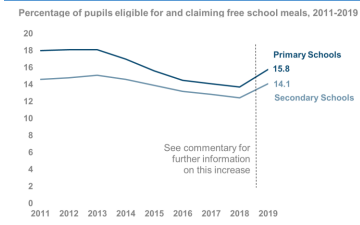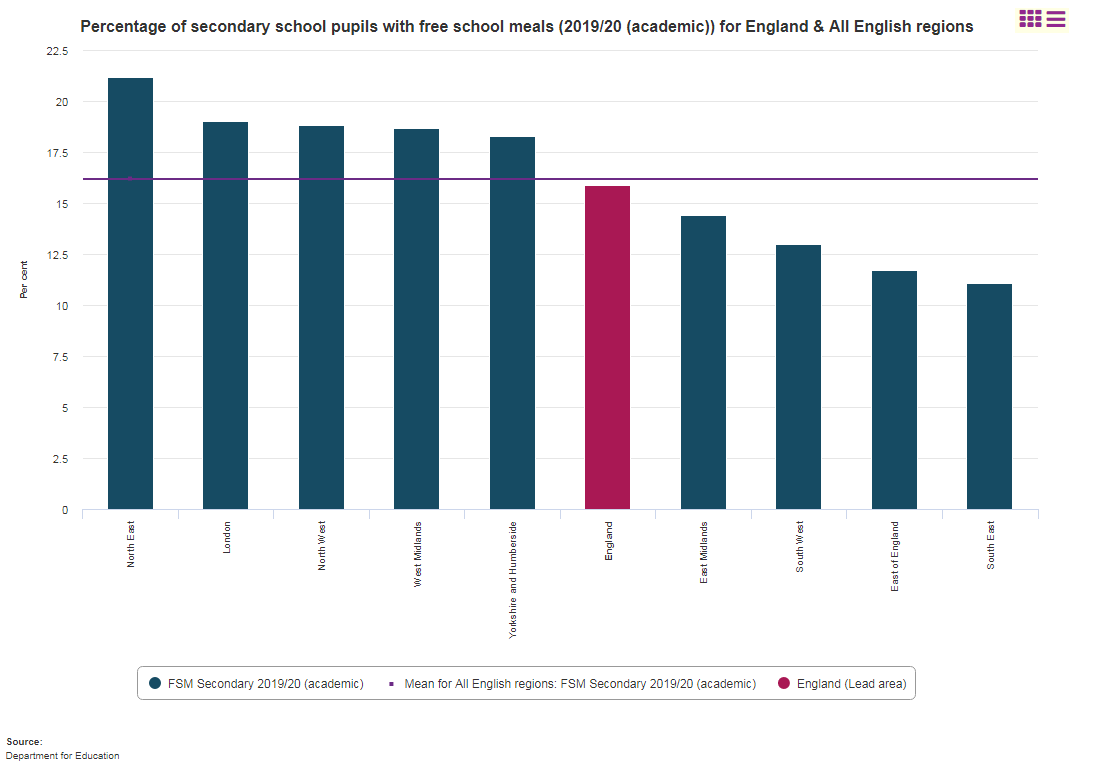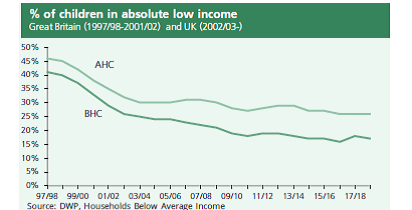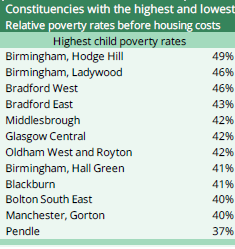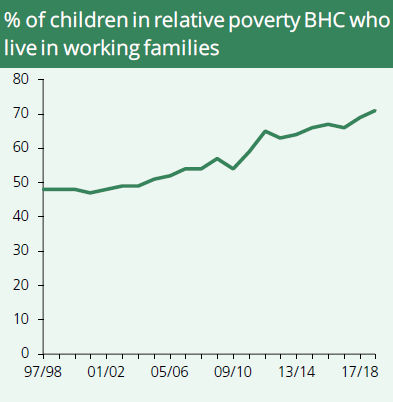Some child food poverty stats
-4.2 million children are in relative child poverty (2.4 million of whom in absolute poverty, 3.7 million in absolute poverty after housing costs)
-72% of kids living in poverty are in working households.
-2.5m live in food insecure households.
-4.2 million children are in relative child poverty (2.4 million of whom in absolute poverty, 3.7 million in absolute poverty after housing costs)
-72% of kids living in poverty are in working households.
-2.5m live in food insecure households.
In case of interest, as I& #39;ve just been explaining on @BBCNewsnight just now
We are talking about a lot of kids. 15.4% of kids in England are on free school meals, that’s 1.2 million children. Post-pandemic, it& #39;s estimated a million more may be eligible now.
We are talking about a lot of kids. 15.4% of kids in England are on free school meals, that’s 1.2 million children. Post-pandemic, it& #39;s estimated a million more may be eligible now.
It varies further across the country. Every northern region is in the top half of the table. In the NE it& #39;s 22.5% of kids. And these themselves are averages, some areas are higher still. In @MarcusRashford& #39;s home city of Manchester 28% of kids are on free school meals.
It varies further across race. For primary (junior years) this is how it breaks down fro Free School Meals
Black Caribbean: 30.6%
Black (Other): 25.2%
Bangladeshi: 21%
Pakistani: 17%
White British: 14.8%
It& #39;s 37.5% in special schools and 42.5% in pupil referral units.
Black Caribbean: 30.6%
Black (Other): 25.2%
Bangladeshi: 21%
Pakistani: 17%
White British: 14.8%
It& #39;s 37.5% in special schools and 42.5% in pupil referral units.
To be clear, you have to be pretty poor to be eligible for FSM. These are the main eligibility criteria.
income support
Universal Credit with household earned income less than £7,400 pa (after tax)
income-based JSA
child tax credit, annual income that does not exceed £16,190
income support
Universal Credit with household earned income less than £7,400 pa (after tax)
income-based JSA
child tax credit, annual income that does not exceed £16,190
So already lots of kids and parents rely on free school meals in term time.
For that reason, the idea of their extension into has not come about during the pandemic. Many had been agitating for it previously.
For that reason, the idea of their extension into has not come about during the pandemic. Many had been agitating for it previously.
A 2018 report by an agency of the UN found that, 2.2 million people in the UK were severely food insecure.
In the last five years, food bank use in the TrussellTrust network has increased by 73%
In the last five years, food bank use in the TrussellTrust network has increased by 73%
Again this is all before the pandemic- no surprise then that a cross-party House of Lords report in June 2020 said:
“we think it is fair to conclude that there are unacceptable levels of food insecurity in this country.”
“we think it is fair to conclude that there are unacceptable levels of food insecurity in this country.”
Of course the government has spent a lot of money to support people during the pandemic. But the thing is going into the pandemic, child poverty was already edging up, it has increased by about 600,000 since 2012. After housing costs, nearly 35% are in relative poverty.
Some contend relative poverty isn& #39;t a good measure of child poverty, saying we shouldn& #39;t measure it in relative terms. But it is a measure used by both Lab and Conservative govts over the years. It& #39;s 60% of the median income. In other words, if you& #39;re in it, you& #39;re poor.
Even if you take absolute poverty though, we still see high levels. About 20% of kids are in this category before housing costs. Note there isn& #39;t that much difference between the relative and absolute numbers anyway.
And it’s worse in certain places-look at these constituencies with the worst relative child poverty rates- nearly all in the north and midlands. In Birmingham Hodgehill nearly half of kids are in relative poverty.
Perhaps most worrying of all is this which shows the % of children living in relative poverty who live in working households. It’s been going up and up and up and is now at 72%. In other words, work is not a guaranteed means of escaping poverty.
Remember this is all BEFORE the pandemic. The disease is making all this worse. Less than 10% of the bottom half of earners say they can work from home and 31% in households in the bottom 20% of the income distribution have no savings.
Families where one or more members are self-employed have a higher than average poverty rate. We think that self-employed people have experienced a larger than average drop in income during the pandemic so again, this makes the problem of child poverty worse.
Government says Universal Credit is a big part of the solution and indeed the system has performed pretty well. Ministers took a crucial decision early on in the pandemic to increase the rate by £20pw. This has been a lifeline for lots. But @jrf_uk told me tonight that even...
...with that, 70% of families in poverty they& #39;d surveyed said they were still struggling have to cut back on the basics. Likewise govt hasn& #39;t confirmed yet whether that extension will endure beyond April.
So whether you think free school meals are a good idea or a bad idea in the pandemic or outside the pandemic, it& #39;s unarguable there is both a) a severe (and worsening) poverty problem in the UK and b) a severe (and worsening) food security problem. Both existed pre pandemic.
So you can argue that things were always going to be difficult in the pandemic: because both in terms of food security and poverty, in the sixth biggest economy in the world, for so many of our fellow citizens (and crucially their kids), things were bad enough to begin with.
NB Britain isn’t alone in this. other industrialised countries have seen growth in food bank use and poverty during the pandemic and before. The safety net in each country varies. But the info above gives the proper context in which the UK school meals debate ought to be viewed.

 Read on Twitter
Read on Twitter